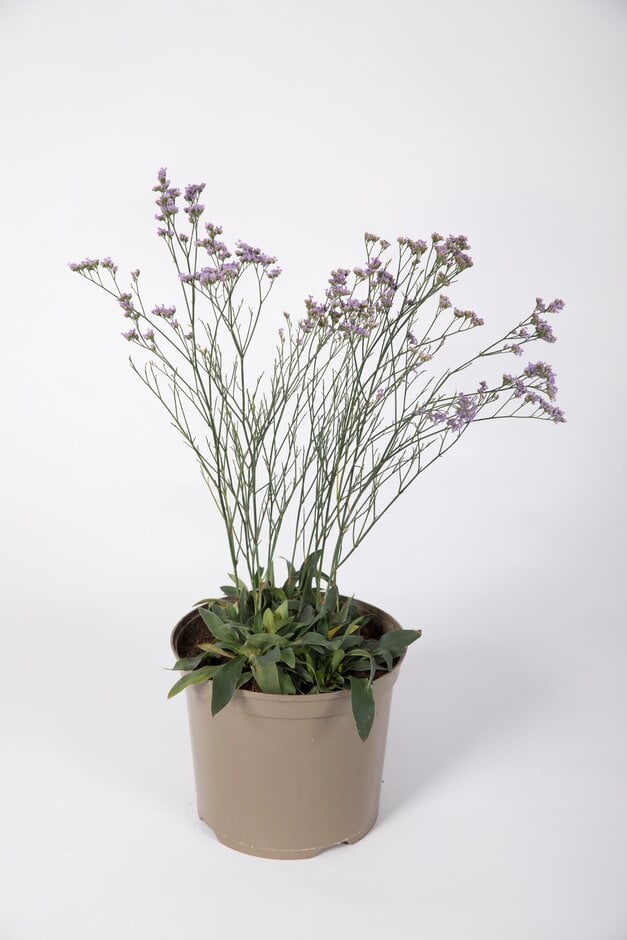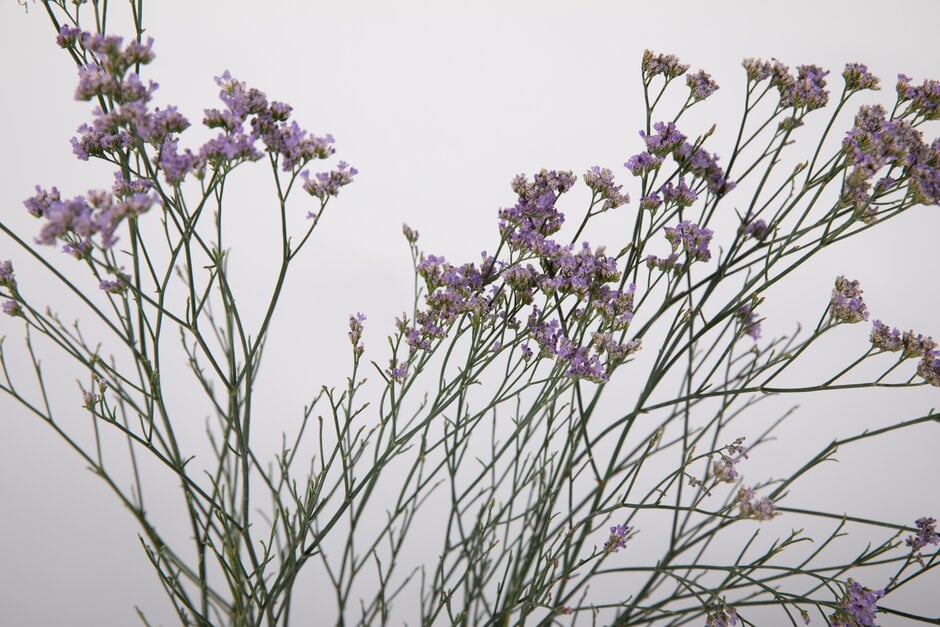Limonium gmelinii Dazzle Rocks ('Ste10'PBR)
Siberian statice [Dazzle Rocks]
A semi-evergreen perennial with a basal rosette of green foliage and upright, wiry stems with sprays of small lilac-purple long-lasting flowers in the summer, which are very attractive to pollinators. A good variety for both fresh and dried flower . In colder regions it may lose all of it's leaves during the winter, but will produce fresh green foliage in the spring
Size
Ultimate height
0.1–0.5 metresTime to ultimate height
2–5 yearsUltimate spread
0.1–0.5 metresGrowing conditions
Moisture
Well–drainedpH
Acid, Alkaline, NeutralColour & scent
| Stem | Flower | Foliage | Fruit | |
| Spring | Green | |||
|---|---|---|---|---|
| Summer | Purple | Green | ||
| Autumn | Green | |||
| Winter | Green |
Position
- Full sun
Aspect
South–facing
Exposure
Exposed or Sheltered Hardiness
H5Botanical details
- Family
- Plumbaginaceae
- Native to GB / Ireland
- No
- Foliage
- Semi evergreen
- Habit
- Clump forming
- Genus
Limonium can be annuals, deciduous or evergreen perennials with simple or pinnately lobed leaves and showy panicles of small flowers with long-lasting coloured tubular calyces and insignificant, ephemeral petals
- Name status
Trade
How to grow
Cultivation
Best grown in sandy soil but will tolerate any well-drained soil in full sun; needs protection from winter wet so good in a container or alpine house. Apply a generous layer of mulch around the crown in autumn and avoid over-watering in winter
Propagation
Propagate by seed sown in pots outdoors in spring or by division in spring
Suggested planting locations and garden types
- City and courtyard gardens
- Cottage and informal garden
- Gravel garden
- Patio and container plants
- Rock garden
- Coastal
Pruning
Cut back after flowering
Pests
Generally pest-free
Diseases
Generally disease-free
Love gardening
Sign up to receive regular gardening tips, inspiration, offers and more
View our Privacy Policy
Get involved
The Royal Horticultural Society is the UK’s leading gardening charity. We aim to enrich everyone’s life through plants, and make the UK a greener and more beautiful place.

